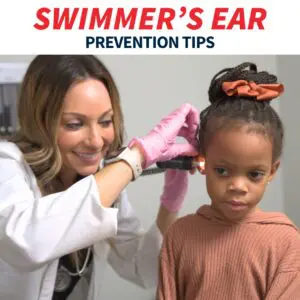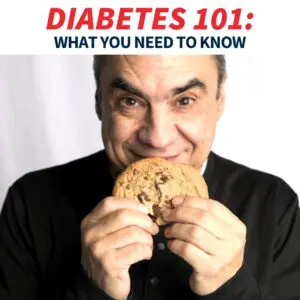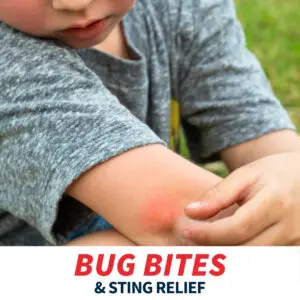The Truths and Myths about Vaccinations
 Throughout the world, and even throughout history, vaccinations have been a polarizing topic. Patients choose not to receive vaccines based on various reasons, some for religious beliefs, allergies to ingredients, or simply scientific misunderstanding. Unfortunately, much of the scientific debate occurring today is based in myths that could leave you and your loved ones at risk for potentially fatal diseases, even those once believed to have been eradicated. There are many common misconceptions making the rounds, but educating yourself about the reality of vaccinations will help you determine what’s real and what’s not.
Throughout the world, and even throughout history, vaccinations have been a polarizing topic. Patients choose not to receive vaccines based on various reasons, some for religious beliefs, allergies to ingredients, or simply scientific misunderstanding. Unfortunately, much of the scientific debate occurring today is based in myths that could leave you and your loved ones at risk for potentially fatal diseases, even those once believed to have been eradicated. There are many common misconceptions making the rounds, but educating yourself about the reality of vaccinations will help you determine what’s real and what’s not.
Myth: Vaccines Cause Autism
This rumor began in 1998 when a doctor from the U.K., Andrew Wakefield, published a conflicted study claiming the vaccination for measles, mumps, and rubella (MMR) could lead to autism. However, in 2004, the claim was found to be a conflict of interest as Wakefield was attempting to have his own measles vaccine patented, and had received money from a lawyer attempting to sue companies that produced the MMR vaccine. Ultimately, his medical license was revoked due to the unfounded research he published.
Unfortunately, the rumor came back to life in 2016 when Wakefield released a movie he directed alleging the CDC hid information that linked the vaccines with autism. However, because of the growing concern regarding the proposed autism link, larger, more in-depth (and unbiased) studies were performed, showing no evidence that the MMR vaccine causes autism, but this has not stopped some of the most outspoken in the population from continuing to spread the misinformation.
Myth: Too Many Vaccines at Once for Children is Harmful
Those with children know that throughout the first few years of life, between the regular check-ups and the last-minute sick appointments, kids are somewhat frequent-flyers at the doctor’s office. At the routine check-ups, several include the recommended vaccinations based on the child’s age. Some of these are combined into one single shot, such as DTap (diphtheria-tetanus-pertussis) and MMR vaccines, and more often than not, multiple shots are given at the same appointment. While it may seem like a lot to be putting into their tiny bodies, scientific data has shown that receiving multiple vaccines does not result in chronic health problems.
The vaccine schedule was created with great care to provide the best protection for your little ones against some of the worst diseases, especially since their immune systems are not terribly strong. Not to mention, receiving multiple shots at once limits the amount of return visits, and most pediatric offices are so quick at administering them, it makes it much less traumatic for the child than coming back to receive injections on a more frequent basis.
Myth: Some of the Ingredients in Vaccines are Toxic
While it is true that some could be considered toxic, they would have to be administered at much higher doses than what is in vaccines to be considered dangerous. That being said, anything can be toxic in too large of quantities, even water. Also, many of the ingredients that are being called out as “toxic” are found in things we may consume or encounter on a daily basis.
Three of the most common toxic buzzwords used to discourage people from receiving vaccines are mercury, formaldehyde, and aluminum. Mercury is a natural part of life. It is commonly found in seafood, and babies ingest mercury from milk, including breast milk. Specifically, thimerosal is the concerning ingredient, defined by the CDC as “a mercury-based preservative used to prevent contamination of multi-dose vials of vaccines.” Nine different studies conducted since 2003, however, found there to be no health concern with this ingredient. Formaldehyde is encountered in everything from automobile exhaust, to various household products, and even health items like antihistamines, cough drops, and mouthwash. Aluminum is something we get from food, water, and medicine daily – an estimated 30 to 50 mg per day. Vaccines that have aluminum will typically only have 0.125 to 0.625 mg per dose, which is about 1% of the daily average.
The creation of vaccines involves a bit of chemistry, so there may be some ingredients that sound scarier than their less-scientific names – if you heard someone say they enjoy sodium chloride on their food, you may look at them funnier than you would had they simply called it salt. If you have any concerns about any ingredients included, be sure to discuss them with your doctor.
Myth (with Some Truth): The Vaccine Includes the Virus & Will Make you Sick
First, we must understand that vaccinations are created as a sort of “training” for your immune system, teaching it how to identify and effectively fight the diseases. In order to properly recognize a disease, the immune system has to have some experience with it, so there are some forms of vaccines that do include the live virus, but they are significantly weakened and will not cause a full-blown form of the disease, even in the rare case that mild symptoms occur. Others include an inactivated or killed form of the bacteria or virus, making it impossible to ever get sick from it.
Commonly, the misconception that “the vaccine made me sick” happens around flu season with the flu shot. In this instance, the flu shot typically takes about 2 weeks to be truly effective in protecting you, so if you come down with an illness, more than likely you contracted a different virus with similar symptoms, were exposed to the flu prior to receiving the flu shot or shortly after, or have come into contact with a strain not included in that season’s vaccine. The flu vaccine in particular contains a dead form of the virus, making it impossible to become ill from the shot itself.
Myth: Not Getting Vaccinated will Only Affect Me
While it is true you are putting yourself at risk by not receiving a vaccine, you are also weakening the much-needed herd immunity. Here’s how it works: If no one was vaccinated, contagious diseases would affect almost everyone, but will be much worse for weaker individuals, such as babies, those with compromised immune systems, and the elderly. However, if the majority of people receive a vaccine, it helps stop the spread of disease, indirectly providing protection to those who cannot receive or have not received the vaccine. Some diseases can be prevented from spreading with as little as 40% of the population being vaccinated, but for those that are highly contagious, 80% – 95% of the population needs to be vaccinated in order for herd immunity to be effective. Herd immunity is what protects us from large outbreaks of disease.
Educating yourself about health is important, but with the abundance of inaccurate information floating around, it can be difficult to know what to believe and what not to believe. If you have any concerns, it is important to speak with a trusted, licensed and certified physician who can help you decide what is best for you and your family. The trouble with the vaccine debate is that our population has come so far from deadly diseases, like smallpox and polio, that we believe we are no longer at risk, making some arguments more plausible. Unfortunately, as people continue to choose not to receive vaccinations, these diseases are creeping their way back in, and those who are too young or medically unable to receive vaccines are put at unnecessary risk.
Vaccines have been around for a long time, and with more research, they continue to improve and become more effective. They are a safe and scientifically proven way to help keep you healthy and protected against some of the most dangerous and contagious diseases. If you require a specific vaccine, or have any questions or concerns about them, please reach out to us today.




